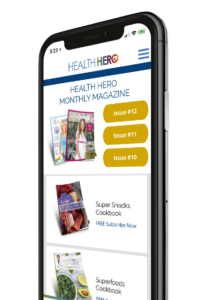This content has been archived. It may no longer be relevant
As healthcare spending in the U.S. continues to grow (currently nearly 18% of GDP) and as accountability in healthcare becomes a bigger and bigger issue, engaging patient audiences in their care is a bigger challenge than ever. Getting patients to integrate simple, daily habits to benefit their health is key to improving outcomes. While many companies look to foster proactive, instead of reactive healthcare – they are having trouble making these processes easy for patients. But with so many of us so deeply dependent on our smartphones, perhaps mobile technology holds some answers.
Private practice physician groups, hospitals, and rehabilitation centers are working to incorporate better technology into their internal processes and patient communications.
Beyond EHR (electronic health records) there are many ways to keep patients and families abreast of facility logistics, patient health literacy, and service or surgery preparation.
Take Dr. Partha Nandi for example: by day Dr. Nandi performs endoscopic procedures to diagnose and treat digestive health. On top of his typical practice, Dr. Nandi wanted to better communicate his holistic approach to patient health. Educating the public and his patients is an important part of his business. With an application, Dr. Nandi was able to get his content in the hands of his on-the-go consumers. This internal medicine physician is able to share e-books, educational episodes, and many other patient literacy tools to better serve his audience. A mobile application complements his health delivery model because an important part of health is the ability to make mindful health efforts anywhere, anytime.

Mobile apps can also be an option for hospitals to communicate better with their consumers. A hospital Florida wanted to help its audience stay on top of ER wait times, important urgent care information, and mapping of their medical center to help patients and families get around. Knowing that much more time on mobile phones is spent within applications instead of in browsers, they understood the opportunity mobile provided.
Mobile apps are a proven way to seamlessly connect with your community! Healthcare costs and getting better outcomes is an issue for everyone, and health and wellness providers can make their patient experience a digital one. This will save resources and benefit both patients and healthcare providers! To share ideas for your institution’s healthcare app please contact us at sales@jacapps.com .
Originally published by Jacobs Media








